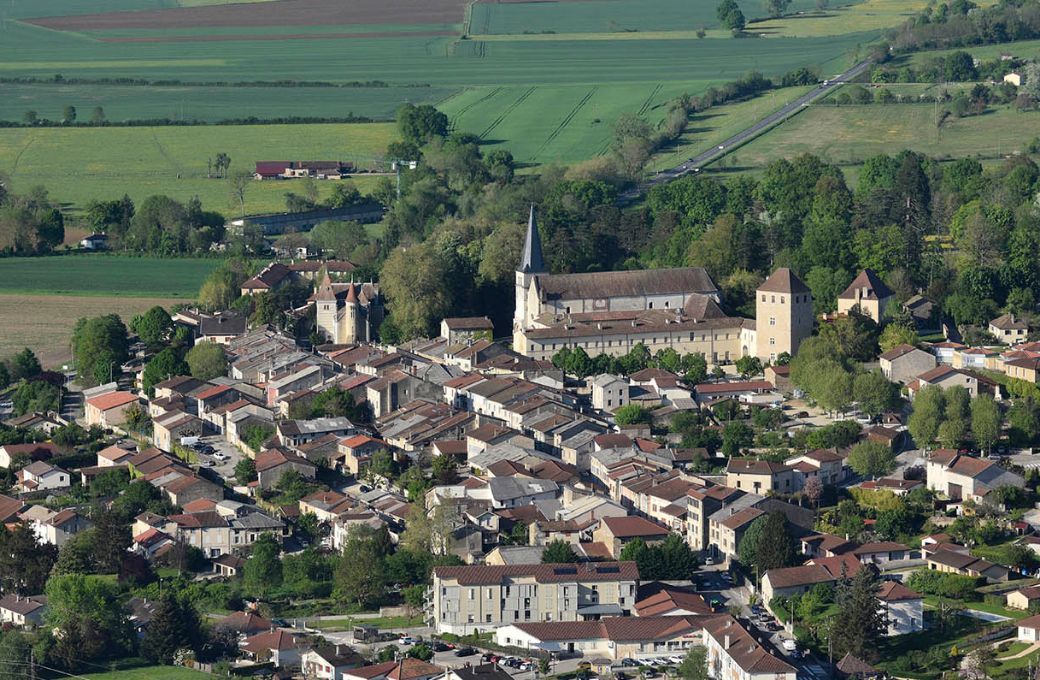Between Lyon and Geneva, between the meanders of the Ain river and the foothills of the Jura, lies the small village of Ambronay, surrounded by fields and acres of woodland. Every September, the centuries-old, cream-coloured Ambronay Abbey transforms itself into the European capital of Early Music. The tradition is not new: the Ambronay Festival has existed since 1980, and the creation of a Baroque Academy thirty years ago helped to anchor the event in the landscape of musical institutions dedicated to historically informed performance, making this the starting point for a host of artistic careers.
More recently, the project has considerably expanded in scale. Ambronay is now a “Cultural Encounter Centre”, active throughout the year. Its Academy has taken on an international dimension as part of the Eeemerging+ programme, in partnership with a dozen leading European institutions. Artists and audiences from all over the world now come to Ambronay in the same way that people used to go on pilgrimages.
Despite this change in scope, Ambronay is maintaining its festival customs: from 15th September, the abbey will be hosting a wealth of representatives from the French and international Baroque scene over four weekends. For example, soprano Patricia Petibon and conductor Héloïse Gaillard, former Academy attendees and long-time collaborators, will come together for a royal programme juxtaposing the destinies of the Empress Agrippina (in Handel), Queen Mary (in Purcell) and Eleanor of Aquitaine (in a new work by Thierry Escaich).
Among the Academy’s other alumni, mezzo Stéphanie d’Oustrac and lutenist Vincent Dumestre’s new recital is eagerly awaited, which combines ancient passacaglias, great operatic dramas and (sometimes naughty) songs of the 1930s – beware of culture shock! Cellist Ophélie Gaillard will also be returning for a programme of Neapolitan songs and dances of the early 18th century, accompanied by Ensemble Pulcinella and countertenor Christophe Dumaux.
Like Gaillard, who directed the Festival Academy ensemble last year, several conductors who have already done so have been invited back for this year’s Festival. Leonardo García Alarcón and the Cappella Mediterranea will continue their exploration of the work of Viennese composer Antonio Draghi, with the oratorio Il dono della vita eterna in which Heaven and Earth confront each other for the salvation of humankind. Paul Agnew will continue his a cappella choral cycles with Les Arts Florissants, in a concert built around the music of William Byrd, transforming the abbey into a haven of Elizabethan England.
William Christie will also return this year, in an intimate event that looks like a passing of the baton between two generations. Together with the young violin virtuoso Théotime Langlois de Swarte, the conductor and harpsichordist will perform a programme of colourful French sonatas. Fans of Baroque violin in general, and Théotime Langlois de Swarte in particular, will be also in for a treat, as this captivating soloist will bring the Festival to a close with his famous ensemble Le Consort in Vivaldi’s The Four Seasons.
The Festival comes full circle after the opening concert given by Amandine Beyer and Gli Incogniti, who present a completely different style of Italian Baroque violin: Corelli’s church concertos, with their alternation of reflection and jubilant flights of fancy. Another historically informed violinist, Julien Chauvin, will be leading the Concert de la Loge in Mozart’s Requiem. Chauvin will also be taking centre stage in a Symphonie concertante that should be well worth the trip, performing alongside Amihai Grosz, the famous principal violist of the Berlin Philharmonic.
In general, the Festival is careful to strike a balance between famous works from the repertoire and rarities to be discovered. As regards greatest hits, Bach fans won’t want to miss the St John Passion given by Ambronay regulars – the ensemble Les Surprises conducted by Louis-Noël Bestion de Camboulas. The week after, harpsichordist Maude Gratton and ensemble Il Convito will be offering an all-instrumental programme devoted exclusively to the Leipzig cantor.
Fans of virtuoso singing and great Italian lyric arias should look forward to the recital by the extraordinary Brazilian sopranist Bruno de Sá, accompanied by Ensemble 1700. For those interested in overlooked rarities, Les Ombres will be presenting – after years of hard work – a revival of a tragedy by André Cardinal Destouches, Télémaque, a world first. Harpsichordist Marie van Rhijn will also be baptising her new ensemble L’Assemblée with rare and unpublished French motets.

Faithful to the French artists who have already passed through its cloisters, the Ambronay Festival is also cultivating an international outlook fostered by Eeemerging+. The Catalan vocal quartet Cantoría, the four German musicians of Prisma, the Spanish ensemble of Ministers of Pastime and the great English choir ORA Singers will make the Abbey look like a merry Tower of Babel for a month.
The Babel of Ambronay Festival offers something for everyone: outdoor concerts, lectures on historical musicology, festive afters in the Festival bar, family workshops and guided tours. The 2023 Festival aims to be non-stop and open to all audiences.
This preview was sponsored by the Centre culturel de rencontre d’Ambronay.


